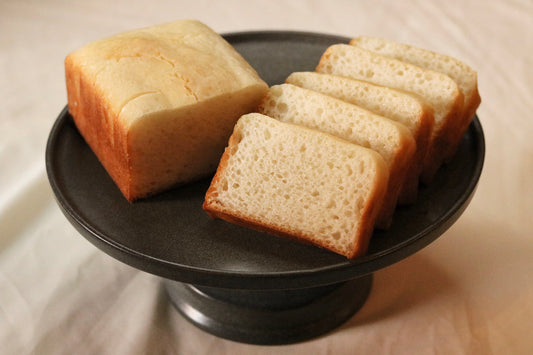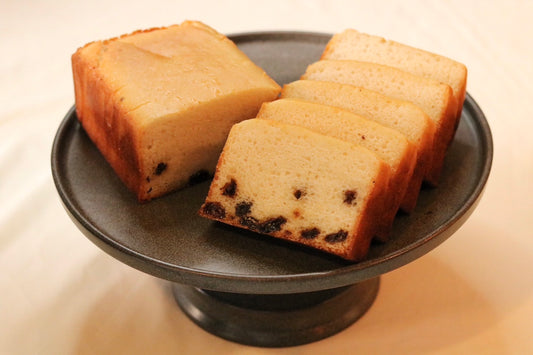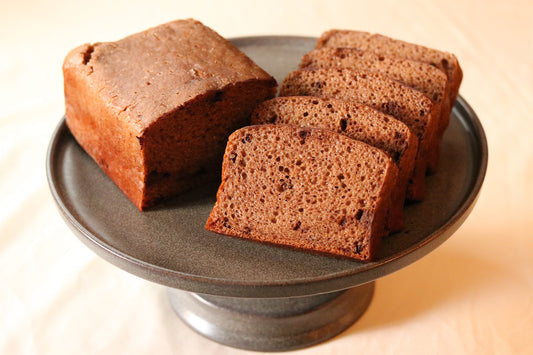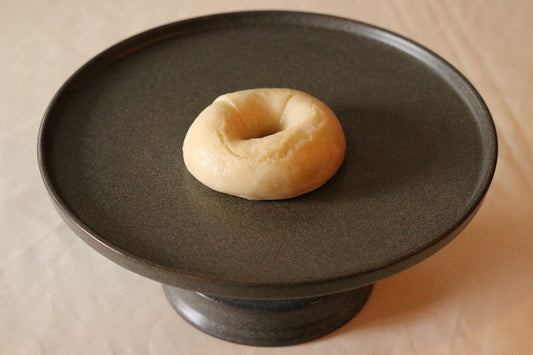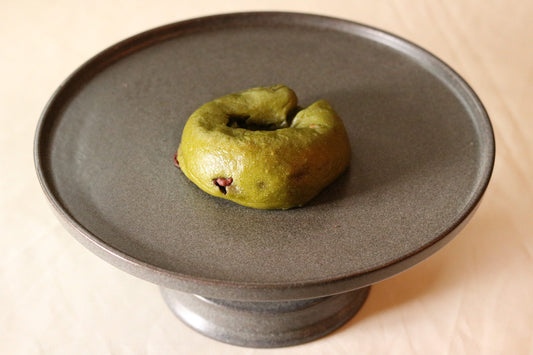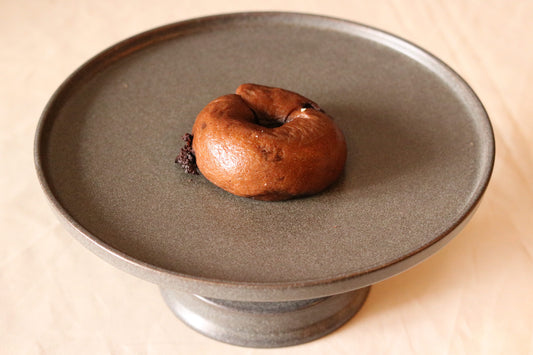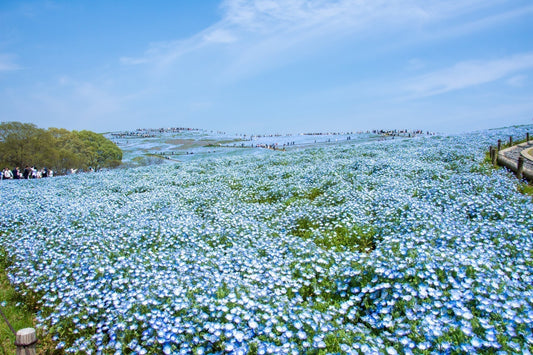Can I drink alcohol even if I'm gluten-free? How to choose alcohol

As interest in gluten-free diets grows, attention is also being paid to the gluten contained in alcohol. For people with gluten intolerance or celiac disease, choosing alcohol is an important issue that directly affects their health .
However, there is still not enough information available about the gluten content of alcoholic beverages. Even when looking at the ingredients list, it is often not clear whether or not a product contains gluten, or how much it contains.
In this article, we will provide a detailed explanation of the gluten contained in alcohol, including the relationship between gluten and alcohol ingredients, as well as points to be aware of when choosing alcohol for people with gluten intolerances .
This book will provide useful information for anyone who enjoys alcohol, as well as those who are gluten-free. Learn the relationship between alcohol and gluten and find the way to enjoy alcohol that suits you .
What is gluten in alcohol?

When enjoying alcohol, it is important to pay attention not only to the type of alcohol and how you drink it, but also to the ingredients contained in the alcohol . Gluten in alcohol is a major problem, especially for people with wheat allergies or gluten intolerances.
Gluten is a type of protein found in grains such as wheat, barley, and rye, and it plays an important role in giving foods like bread and pasta their elasticity and firmness. However, for people with gluten intolerance or celiac disease, consuming gluten can have adverse health effects .
As a result, more and more people are trying to eat gluten-free, but the same caution is needed when it comes to alcohol, as some alcoholic beverages contain grains that contain gluten as ingredients .
Alcohol ingredients and gluten
Malt, wheat, rye, etc.
Malt, the main ingredient in beer, is made by germinating and drying barley. Therefore, beer contains gluten. Distilled spirits such as whiskey, vodka, and gin also sometimes use wheat and rye as ingredients.
On the other hand, wine, brandy, sake, shochu, etc. are generally considered gluten-free because they do not use gluten-containing grains as ingredients. However, the possibility of contamination during the manufacturing process cannot be completely ruled out.
Possible gluten contamination
Even if an alcoholic beverage uses gluten-free ingredients, gluten may be contaminated during the manufacturing process. For example, if gluten-containing products are manufactured on the same production line, or if gluten is contained in additives.
In particular, people with gluten intolerance or celiac disease need to be extremely careful, as they can react to even minute amounts of gluten. To drink it safely, it is important to check with the manufacturer to make sure that it is free of gluten .
Current status of gluten content labeling

Currently, there is no obligation in Japan to label the gluten content of alcoholic beverages. Therefore, it is currently difficult to determine whether or not a product contains gluten, and how much it contains, except for products that advertise themselves as gluten-free.
Some countries overseas are making progress in enforcing gluten-free labeling regulations. For example, in the United States, gluten-free labeling is only permitted for foods with a gluten content of less than 1 ppm. In Japan as well, it is expected that discussions regarding gluten labeling for alcohol will progress in the future.
Gluten intolerance and alcohol consumption
People with gluten intolerance or celiac disease should be careful about consuming alcoholic beverages that contain gluten. Depending on the severity of your condition, it may be wise to avoid alcoholic beverages that may contain gluten to avoid the risk of becoming ill .
Additionally, because alcohol itself puts a strain on the digestive tract, people with gluten intolerances need to be careful about the amount of alcohol they consume. It is important to drink in moderation, taking into account your physical condition.
When choosing gluten-free alcohol, be sure to check the ingredients label carefully and contact the manufacturer to ensure safety. By choosing alcohol that suits your constitution, you should be able to enjoy alcohol with peace of mind .
Gluten-free and safe to drink

People who are gluten-free tend to be careful when choosing alcohol. However, not all alcohol contains gluten . Depending on the ingredients and production method, there are some alcoholic beverages that can be enjoyed without worrying about gluten.
Here we will explain in detail about gluten-free alcohol that you can safely drink. We will explain the types of alcohol, focusing on distilled spirits, that have a low risk of gluten contamination and the reasons why . This information should be useful when choosing gluten-free alcohol.
distilled spirits
Distilled spirits are a prime example of gluten-free alcohol that can be enjoyed safely. Even if gluten-containing grains such as wheat and rye are used as ingredients, the gluten is removed during the distillation process, so it is believed that no gluten remains in the final product .
However, it is important to note that it cannot be said to be completely gluten-free. This is because there is a possibility that trace amounts of gluten from the raw materials may remain after distillation, and there is also a risk of contamination during the production line. In particular, people who are sensitive to gluten should choose carefully, such as by contacting the manufacturer.
Vodka, gin, rum, tequila, etc.
Among distilled alcoholic beverages, vodka, gin, rum, and tequila are particularly easy to drink and gluten-free, as many of them use gluten-free ingredients.
For example, vodka is made primarily from potatoes and corn, gin from botanicals (plant materials), rum from sugarcane, and tequila from agave. These ingredients do not contain gluten to begin with, so the risk of gluten remaining in the alcohol after distillation is extremely low .
Why is gluten removed during the distillation process?
So why is gluten removed in distilled spirits? The reason lies in the properties of gluten. Gluten is a substance with a larger molecular weight and a higher boiling point than alcohol.
During distillation, gluten does not evaporate at temperatures that would evaporate alcohol, so when the alcohol vapor cools to a liquid, the gluten is removed as a residue.
However, depending on the distillation method and number of times, trace amounts of gluten may remain. Also, even if gluten from the raw materials is completely removed, it is important to remember that there is a risk of contamination during the manufacturing process. Distilled spirits are suitable for gluten-free diets, but people with allergies need to choose carefully .
Sake made from rice or sweet potatoes

Alcohol made from rice or potatoes is also gaining attention as a safe, gluten-free beverage. Unlike wheat or barley, these ingredients do not contain gluten .
Sake and shochu have long been popular in Japan, and they are also easy-to-drink options for those on a gluten-free diet. However, it is important to check whether there is any risk of contamination during the manufacturing process.
Sake, shochu
Sake is a fermented alcoholic beverage made from rice. It is made by converting rice starch into sugar using rice koji and then fermenting it with yeast. On the other hand, shochu is a distilled alcoholic beverage made from rice, potatoes, barley, etc. Both are gluten-free and suitable for gluten-free diets .
However, it is important to note that barley koji may be used in the manufacturing process, or wheat may be used as a secondary ingredient. Barley shochu in particular cannot be considered gluten-free because it uses barley as an ingredient. It is recommended to choose sake, rice shochu, or sweet potato shochu .
Plum wine, fruit wine, etc.
Plum wine and fruit liquor are also gluten-free drinks. They are made by candied plums or fruit and then steeping them in sake or shochu. If the alcoholic beverages used are gluten-free, then plum wine and fruit liquor can also be considered gluten-free .
However, some liqueurs contain alcoholic beverages such as whiskey and vodka, which may contain gluten. When choosing a commercially available product, it is best to check the ingredient label or contact the manufacturer.
Gluten-free beer and cocktails
In recent years, with the growing interest in gluten-free drinks, the number of beers and cocktails that claim to be gluten-free has increased . These drinks prevent the contamination of gluten by selecting ingredients and managing the manufacturing process.
If you choose a product that is labeled gluten-free, you can enjoy alcohol without worrying about gluten. However, labeling standards vary depending on the manufacturer, so it's important to check the detailed information.
Types of gluten-free beer
Gluten-free beer is made using gluten-free ingredients such as sorghum, quinoa, and rice instead of barley. The flavor and taste are different from regular beer, but the advantage is that you can still enjoy it in a beer-like way .
Well-known international brands include Greens, Schneider's, and Glutenburg. In Japan, brands like Kirin's Grand Kirin Free are available. The selection is still limited, but it is expected that more options will be available in the future.
Gluten-free cocktail base
There are also gluten-free cocktail bases available. For example, distilled spirits such as vodka, gin, rum, and tequila may not contain gluten depending on the ingredients and production method .
You can also make gluten-free cocktails at home using gluten-free vodka or gin. For commercially available cocktails, it's best to check the ingredients label or contact the manufacturer to be sure.
Making good use of gluten-free alcoholic beverages will surely broaden the ways you can enjoy cocktails . Why not find the drink that suits you best and enjoy a gluten-free cocktail?
Alcoholic beverages that may contain gluten

For those who are gluten-free, one thing to be careful of when choosing alcohol is that it may contain gluten. Depending on the ingredients and manufacturing method, some alcoholic beverages have a higher risk of being contaminated with gluten .
Beer, in particular, requires caution. Malt, the main ingredient in beer, is made from barley, which contains a lot of gluten. Whiskey and vodka may also contain wheat or rye as ingredients.
To avoid gluten contamination, it is important to check the ingredient label and contact the manufacturer . Let's take a closer look at alcoholic beverages that may contain gluten.
Beer
Beer is one of the alcoholic beverages that requires the most attention from people on a gluten-free diet, as the main ingredient of beer, malt, is made from barley, which is rich in gluten .
To make beer, malt is germinated and dried, then crushed and mixed with water, and boiled to make wort. Yeast is added to this wort and fermented, producing alcohol, which becomes beer.
This means that beer contains gluten from the very beginning of the manufacturing process. Drinking beer is likely to lead to gluten intake . It would be wise for people who want to strictly go gluten-free to avoid beer.
Beer made primarily from malt
Most commercially available beers are made primarily from malt. Not only classic styles like lager, ale, and pilsner, but also beers that use a lot of wheat, such as weizen, contain gluten .
The same goes for imported beer. Beers from countries like Germany, Belgium, and the UK are all made with malt as an ingredient. Unless they are labeled as gluten-free, you should assume they contain gluten.
Craft beer without gluten-free labeling
Craft beer, which has become popular in recent years, also requires caution from a gluten-free perspective. Craft beer often uses unique ingredients and brewing methods, making it difficult to determine whether or not it contains gluten .
For example, beers made with wheat or rye, or beers that use ingredients other than malt for flavoring, are more likely to contain gluten. It's best to check the label or ask the brewery.
There are some craft beers that are labeled gluten-free, but the number is still limited. Labeling standards vary depending on the manufacturer, so it's important to check the detailed information before making a selection . If safety is a priority, choosing alcoholic beverages other than beer is one option.
Whiskey and some liqueurs

Some whiskeys and liqueurs may contain gluten because they contain wheat as an ingredient or there is a risk of gluten being mixed in during the manufacturing process.
Whiskey is made from grains such as barley, rye, and corn . Barley and rye contain gluten, so there is a possibility that gluten from the ingredients may remain in the whiskey.
Also, some liqueurs are based on whiskey or vodka, and if these alcoholic beverages are used as ingredients, there is a higher risk of gluten being present .
Risk of gluten contamination due to ingredients or manufacturing process
Whiskey and liqueurs are classified as distilled spirits. It is generally believed that gluten is removed during the distillation process. However, depending on the distillation method and number of times, trace amounts of gluten may remain .
Even if gluten derived from raw materials is completely removed, there is still a risk of contamination during the production line. If the product is produced on the same line as products that use ingredients containing gluten, there is a risk of contamination.
Small breweries and craft makers, in particular, may not have sufficient control over their production lines, so those who prioritize gluten-free diets can rest assured by choosing products from major manufacturers .
The importance of checking labeling
When choosing whiskey or liqueur, it's important to check the label. Look for information about ingredients, manufacturing process, and gluten-free labeling to determine the risk of gluten contamination .
When it comes to overseas products, it is important to note that labeling standards vary from country to country. Under Japan's Food Labeling Act, gluten is designated as a specified ingredient, but this is not necessarily the case overseas.
It is best to check whether the product is gluten-free and to inquire with the manufacturer if you are unsure. It is important to use the label to choose alcohol that suits your constitution.
Things to note about cocktails and chuhai
Cocktails and chuhai are also alcoholic beverages that require caution from a gluten-free perspective, as they are made by mixing multiple alcoholic drinks and ingredients, and it can be difficult to tell whether they contain gluten or not .
In particular, commercially available cocktails and chuhai drinks are not required to display ingredients, so even if they contain ingredients that may contain gluten, it is not possible to determine this from the label alone.
It is also unclear whether cocktails and chuhai served at bars and restaurants are gluten-free, as the alcohol and ingredients used vary from establishment to establishment .
Possible use of gluten-containing ingredients
Some ingredients used in cocktails and chuhai contain gluten, such as beer-based cocktails and cocktails containing wheat-based vodka.
Even if a restaurant doesn't use alcohol, which may contain gluten, the garnishes may contain gluten, such as crackers, pretzels, and wheat products, as well as sauces and syrups that contain wheat flour.
When buying commercially available chuhai, it is important to check the ingredients label. If there is no label, it is best to contact the manufacturer.
The need to check with the bartender
When ordering cocktails or chuhai at a bar or restaurant, it's important to check whether they're gluten-free. Be sure to ask the bartender or waiter about the alcohol and ingredients used .
It's a good idea to explain the importance of gluten-free food and ask if there are any menu items that can accommodate this. If it seems difficult to accommodate, it's wise to choose alcohol with a low risk of gluten contamination.
When eating out, it is important to clearly communicate your constitution . Restaurants are also expected to deepen their understanding of gluten-free diets and create an environment where customers can enjoy their meals with peace of mind.
Tips for choosing gluten-free alcohol

There are a few points to keep in mind when choosing gluten-free alcohol. By knowing how to check the label, how to contact the manufacturer, and the appropriate amount, you can enjoy your alcohol with peace of mind .
Here are three points to consider when choosing gluten-free alcohol. Use this as a reference to find the perfect drink for you.
Labeling check
When choosing gluten-free alcohol, it's important to first check the label. Look at information about the ingredients, manufacturing process, and gluten-free labeling to determine the risk of gluten contamination .
Under Japan's Food Labeling Act, gluten is designated as a specified ingredient, so alcohol produced domestically should be labeled as containing gluten.
However, it is important to note that labeling standards may differ for overseas products. It is best to check whether the product is gluten-free and contact the manufacturer if you have any questions .
Contact the manufacturer

If you're concerned about the risk of gluten contamination, you can always contact the manufacturer directly to get information about ingredients, manufacturing processes, and gluten-free guarantees .
Contact methods are often listed on the manufacturer's website or product packaging. Use phone, email, or the inquiry form to check any concerns you may have.
While manufacturers' responses will vary depending on the product, this is also a good opportunity to deepen your understanding of gluten-free . Active communication should lead to a safe and secure alcohol selection.
Take care to consume in moderation
Once you've chosen gluten-free alcohol, it's important to drink in moderation. Drinking too much alcohol, whether it contains gluten or not, is not good for your health.
People with gluten intolerance should also be mindful of their alcohol intake, as alcohol can be hard on the digestive tract and may worsen symptoms.
The most important thing is to enjoy drinking in moderation, taking into consideration your physical condition. Drinking delicious alcohol is an important time to relax your mind and body . Make good use of gluten-free alcohol and enjoy a fulfilling time.
Introducing Komeko's Palette's gluten-free menu
Gluten-free rice flour bread

Komeko's Palette offers bread made with 100% rice flour, which does not contain any wheat . It has the chewy texture unique to rice flour and a gentle sweetness not found in wheat bread. This product is recommended not only for those who want to avoid gluten, but also for health-conscious people . We are also committed to being completely additive-free, and are mindful of safety and security. People with wheat allergies or those who require a gluten-free diet can also enjoy our delicious bread .
Gluten-free rice flour bagels

Gluten-free bagels made with rice flour are also a popular item. They have a unique chewy texture and a wide variety of flavors, from plain to fruit. They are also delicious as bagel sandwiches, providing a satisfying and satisfying meal . Palette's bagels are made with beet sugar instead of refined sugar, resulting in a refined sweetness. Be sure to try these new and innovative bagels , which are both healthy and delicious .
Gluten-free rice flour dumplings

Komeko's Palette also sells gluten-free gyoza. The dough, made with rice flour, has a chewier texture than gyoza skins made with wheat flour. The skin has a gentle flavor that brings out the umami of the filling. Gluten-free gyoza are hard to find commercially. With Palette's rice flour gyoza skins, you can enjoy gyoza without worrying about gluten . They're also the perfect product for making homemade gyoza at home.
Gluten-free rice flour dumplings

Palette's gluten-free dumplings, made with rice flour, are also popular. They have a chewy texture and gentle sweetness that only rice flour can provide.
This is a recommended item for those who want to enjoy a healthy snack time.It can also be safely enjoyed by those with wheat allergies or those avoiding gluten.
Summary: There are alcoholic drinks that can be enjoyed even if you are gluten-free

Choosing alcohol can seem like a difficult issue for people who are gluten-free, but by checking the label and inquiring with the manufacturer, there are actually a surprising number of alcoholic beverages that can avoid the risk of gluten contamination .
It's best to avoid beer, but most wines and spirits are relatively safe to drink. Recently, there has been an increase in the number of beers and liqueurs that are labeled as gluten-free.
The important thing is to choose alcohol that suits your constitution . To do this, you need to gather information and make an appropriate decision. I want to prioritize safety while also pursuing deliciousness.
We are now living in an age where even gluten-free people can fully enjoy alcohol. As long as you drink in moderation and in line with your physical condition, alcohol can be a great way to relieve stress and connect with others . Be sure to try choosing the right alcohol to enrich your gluten-free life.




